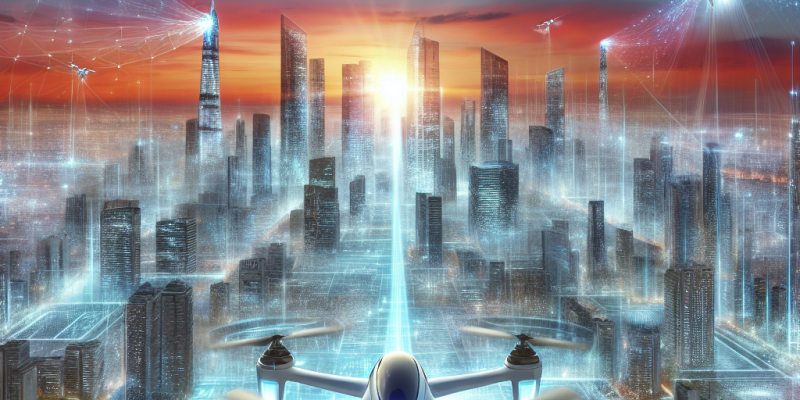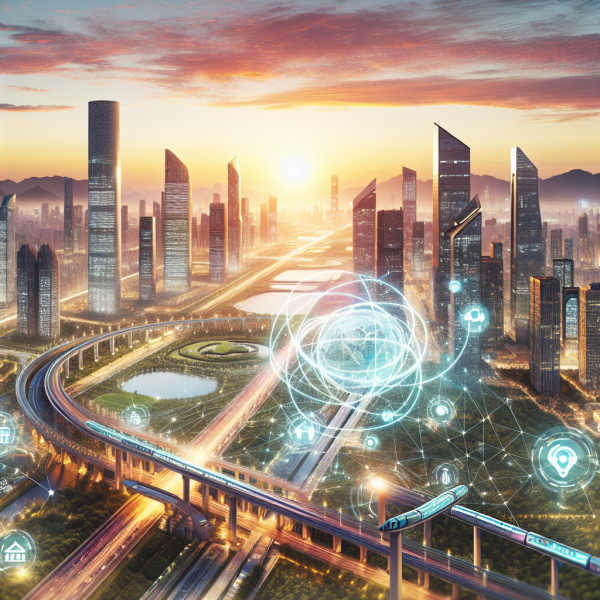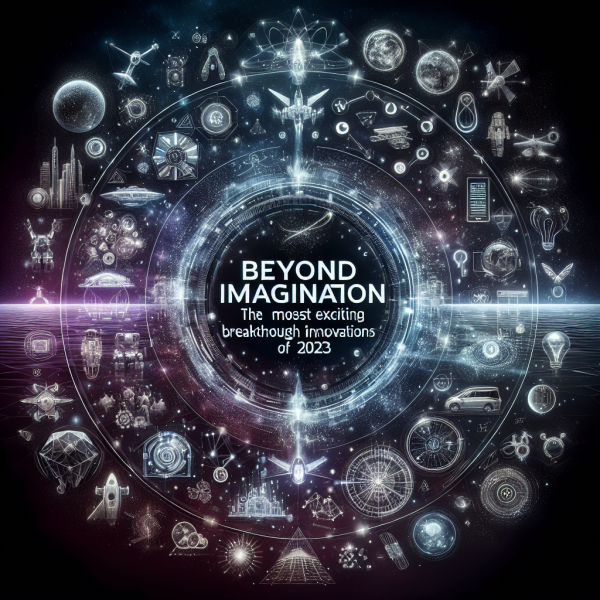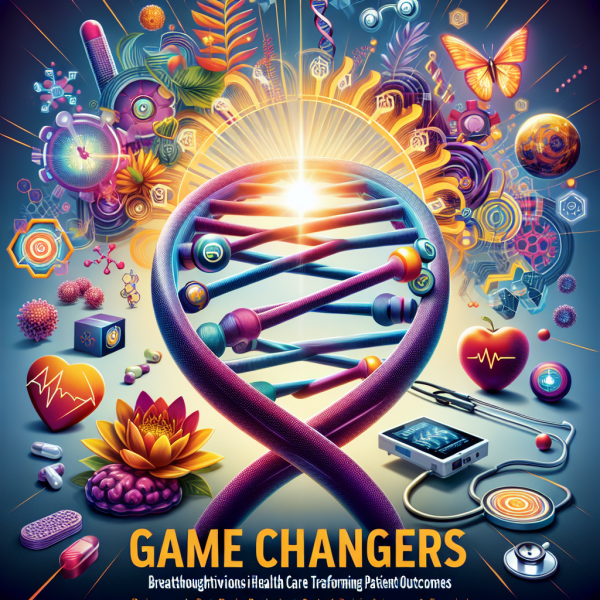Revolutionizing Tomorrow: The Breakthrough Innovations Shaping Our Future

Revolutionizing Tomorrow: The Breakthrough Innovations Shaping Our Future
As we step into a new era marked by rapid technological advancements, the landscape of our daily lives is being transformed at an unprecedented pace. Innovations that once seemed like science fiction are now becoming reality, significantly influencing various sectors such as healthcare, transportation, and communication. As we stand on the brink of a new chapter in human progress, it is essential to explore the breakthroughs that are shaping our future and how they promise to revolutionize society.
1. Artificial Intelligence and Machine Learning
Artificial Intelligence (AI) and Machine Learning (ML) have emerged as cornerstone technologies propelling innovation in countless fields. From predictive algorithms that improve customer experiences to advancements in natural language processing that make human-machine interaction seamless, AI is at the forefront of change.
Healthcare is witnessing the most profound impact of AI, as algorithms are now capable of analyzing medical images with accuracy comparable to seasoned radiologists. Additionally, AI-driven tools aid in drug discovery and personalized medicine, drastically reducing research time and costs. As we harness the power of AI, we are not only augmenting human capabilities but also embarking on a path toward more efficient and effective systems that can address complex challenges.
2. Renewable Energy and Sustainable Technologies
With climate change presenting an existential threat, the shift towards renewable energy sources is vital for our future. Innovations in solar, wind, and bioenergy technologies have made clean energy more accessible and economically viable. Companies are developing more efficient solar panels, while offshore wind farms are capturing the powerful winds of coastal regions.
Battery technology is also seeing rapid advancements, particularly with the development of solid-state batteries that promise higher energy density and faster charging times. These innovations will not only make electric vehicles more practical but will also facilitate the transition toward a sustainable energy grid, reducing our reliance on fossil fuels and decreasing carbon emissions.
3. Biotechnology and Genetic Engineering
Biotechnology and genetic engineering are revolutionizing agriculture and medicine alike. CRISPR technology, a groundbreaking tool for gene editing, allows scientists to make precise modifications at the genomic level, opening doors to addressing genetic disorders, enhancing agricultural resilience, and developing new treatments for diseases that previously lacked effective therapies.
The Covid-19 pandemic accelerated advancements in vaccine technology, showcasing the potential of mRNA vaccines that could also be adapted for other diseases. Innovations in gene therapy continue to break barriers in treatments for conditions like cystic fibrosis and certain types of cancer, paving the way for a healthier future.
4. The Internet of Things (IoT) and Smart Cities
The IoT represents the culmination of data-driven technological evolution, where everyday objects are interconnected, allowing for smarter and more efficient living. Smart devices in homes can optimize energy usage, improve security, and enhance convenience, leading to better quality of life for citizens.
On a larger scale, smart city initiatives are leveraging IoT technologies to improve urban infrastructure and services. From more efficient public transportation systems to smart waste management and environmental monitoring, these innovations are essential for managing the challenges posed by urbanization and climate change.
5. Space Exploration and Technology
The resurgence of space exploration has ushered in a new age of innovation, with private companies like SpaceX and Blue Origin leading the charge. The ambition to explore other planets, particularly Mars, has sparked advancements in technology, materials science, and sustainable practices.
Moreover, the industry is witnessing a revived interest in satellite technology, enabling better communication systems and Earth observation capabilities. These developments not only enhance our understanding of the universe but also contribute to improvements in climate monitoring, disaster management, and global connectivity.
Conclusion
As we explore these breakthrough innovations reshaping our future, it is clear that we are at a pivotal moment in human history. These advancements promise not only to enhance our everyday lives but also to address some of the most pressing challenges we face today, from healthcare to climate change. As we embrace these technologies, it is essential to pursue them ethically, ensuring that the benefits are equitably distributed across all segments of society. The future is bright, and with the right vision and action, we can truly revolutionize tomorrow.














